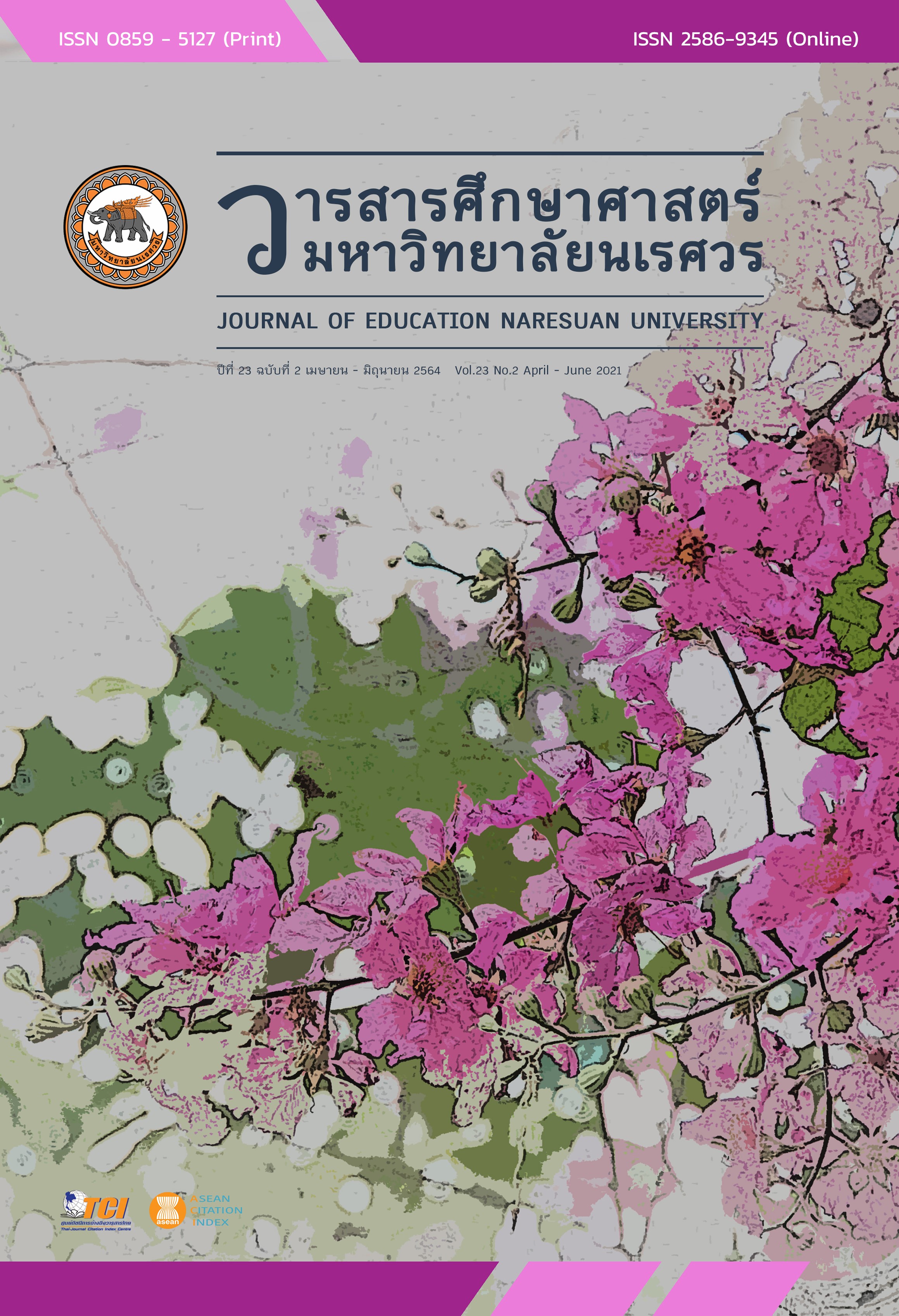THE NEEDS ASSESSMENT OF ACADEMIC MANAGEMENT IN PRIVATE LOWER SECONDARY SCHOOLS BASED ON THE CONCEPT OF PRODUCTIVE PEDAGOGY FOR DIVERSE LEARNERS ความต้องการจำเป็นของการบริหารวิชาการโรงเรียนเอกชนระดับมัธยมศึกษาตอนต้น ตามแนวคิดการเรียนการสอนที่มีผลิตภาพสำหรับผู้เรียนที่มีความแตกต่างกัน
Main Article Content
Abstract
This research was a survey to study the priority needs assessment of academic management in private school based on the concept of productive pedagogy for diverse learners. The population in this research was 1,032 schools under the Office of the Private Education Commission and the sample was 604 people, including a school director, a teacher and a teacher in an academic department. The research instrument used in this study was a 5-level rating scaled questionnaire, and 70% of the questionnaires was returned. The data were analyzed by frequency distribution, percentage, mean, standard deviation, and PNI modified priority needs index. The findings revealed that the priority needs of PNI academic management in private lower secondary schools based on the concept of productive pedagogy for diverse learners found that in curriculum the highest index was intellectual quality for high, medium, and low academic achievers. In Instruction, the highest index was connectedness for high achievers, working with valuing differences for medium achievers, and supportive classroom environment for low achievers. In Assessment, the highest index was intellectual quality for high, medium, and low achievers.
Article Details
The owner of the article does not copy or violate any of its copyright. If any copyright infringement occurs or prosecution, in any case, the Editorial Board is not involved in all the rights to the owner of the article to be performed.
References
Boonlap, N. (2015). Individual learning style. Retrieved March 10, 2019, from http://portal.in.th/inno-tiw/pages/1427 [in Thai]
Brown, M. M., & Starrett, T. (2017). Fostering student connectedness: Building relationships in the classroom. Retrieved on 10 March 2019, from https://www.facultyfocus.com/articles/teaching-and-learning/fostering-student-connectedness-building-relationships-classroom/
Chaemchoy, S. (2018). Management in the digital age. Phitsanulok: Naresuan University Press. [in Thai]
Cleary, T. (2006). The development and validation of the self-regulation strategy inventory self-report. Journal of School Psychology, 44, 307-322. DOI: 10.1016/j.jsp.2006.05.002
Hayes, D., Mills, M., Christie, P., & Lingard, B. (2006). Teachers and schooling making a difference: Productive pedagogies, assessment and performance. Crows Nest, NSW, Australia: Allen & Unwin.
IRIS Center. (2013). Using data-based individualization to intensify instruction. Retrieved from https://iris.peabody.vanderbilt.edu/module/dbi1/cresource/
Mills, B. L. (2010). Teachers and school reform: Working with productive pedagogies and productive assessment. Melbourne Studies in Education, 44(2), 1-18. DOI: 10.1080/17508487.2003.9558596
National Institute of Educational Testing. (2019). The nine common subjects in 2017. Retrieved March 10, 2019, from www.niets.or.th [in Thai]
National Primary Education. (1997). Authentic assessment. Bangkok: Kurusapa Printing. [in Thai]
OECD. (2019). OECD skills surveys. Retrieved March 10, 2019, from http://pisadataexplorer.oecd.org/ide/idepisa/
Patrawart, K. (2016). Important lessons from the international level. Retrieved March10, 2018, from https://thaipublica.org/2016/12/kraiyos-pisa-2015/ [in Thai]
Pankeaw, S., Thepuan, P., & Benkar, P. (2014). The measurement and authentic evaluation of Private Vocational Institutes of Songkhla Province. Hatyai Journal, 12(2), 147-158. [in Thai]
Thaiposri, P., & Jeerungsuwan, N. (2015). Electronic portfolio development model for authentic assessment for the course, student project in multimedia technology, for undergraduate students in the Department of information Technology at Nakhon Pathom Rajabhat University. Journal of Education Naresuan University, 17(1), 24-32. [in Thai]
Salli-Copur, D. (2005). Coping with the problems of mixed ability classes. Internet TESL Journal, 11(8). Retrieved from http://iteslj.org/Techniques/Salli-Copur-MixedAbility.html
Thompson, G. (2013). Aligning curriculum, instruction, and assessment. Retrieved May 5, 2017, from https://prezi.com/xew2nz2dj0sp/aligning-curriculum-instruction-and-assessment/
Wongwanich, S. (2003). New learning evaluation. Bangkok: Chulalongkorn University Press. [in Thai]
Yantecho, C. (2014). Citizenship according to Buddhist guidelines. Retrieved March 10, 2019, from https://www.stou.ac.th/study/sumrit/5-58(500)/page2-5-58(500).html [in Thai]


